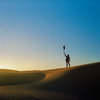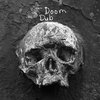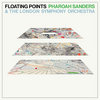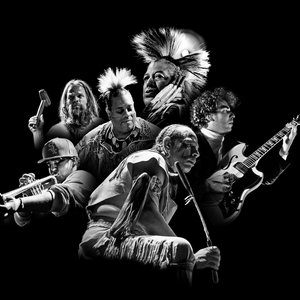Medicine Singers by Medicine Singers
Tracklist
| 1. | A Cry | 2:03 |
| 2. | Daybreak | 2:31 |
| 3. | Hawk Song | 2:05 |
| 4. | Sanctuary | 5:49 |
| 5. | My Brother | 1:00 |
| 6. | Shootingstar Press | 0:49 |
| 7. | Sunrise (Rumble) | 3:29 |
| 8. | Shapeshifter | 3:55 |
| 9. | Sunset | 6:18 |
| 10. | Reprise of a Cry | 2:10 |
Videos
Credits
released July 1, 2022
One Dollar of each Medicine Singers physical album sale goes to the Pocasset Pocanoket Land Trust www.pocassetlandtrust.org
Lead vocals - Daryl Black Eagle, Red Medicine, Ian Wapicana, Joe Rainey, Ray Two Hawks Watson
Backing vocals, powwow drum - Eastern Medicine Singers
Guitar, pipe organ, electronics - Yonatan Gat
Trumpet, electronics - jaimie branch
Electronics - Ryan Olson, Ikue Mori, Isaac Gale
Zither - Laraaji
EMS Synthi 100, ARP 2500 & 2600, TONTO, Formanta Polyvox, Korg MS 20, electric piano - Gelbart
Marimba, vibraphone, bowed piano string - Thor Harris
Bass - Chris Pravdica
Drums - Max Almario (4), Greg Fox (8)
Produced by Yonatan Gat
Executive Producer - Daryl Black Eagle Jamieson
Tracked by Seth Manchester
Additional engineering: Gustavo Halfeld, Jeff Kolhede, Jason Tawkin
Mixed by Yonatan Gat, Daniel Schlett, Jonathan Schenke, Seth Mancheter
Front cover painting - jaimie branch
Front cover photograph - Yonatan Gat
Tracks 2, 3, 5, 6, 8, 9 co-produced by Ryan Olson
Track 4 co-produced by jaimie branch
Track 8 co-produced by Jonathan Schenke
Track 9 co-produced by Gelbart and Ikue Mori
Mastered by by Vlado Meller
The songs on the LP range from contemporary songs written by the Medicine Singers to traditional melodies that date back centuries. Jamieson identified his own composition “Daybreak”, which is sung in a language spoken fluently by less than 10 people anywhere in the world, as a key track on the project. “I took the words from the Algonquin Massachusett dialect, right now there’s less than ten people in the world who speak it. It was approved by our elder Donald Three Bears Fisher, who passed away after the song was recorded, but I got to play it for him. Three Bears was a traditional guy, but he really liked it, and knowing that he approved was all I needed.”
The album’s third track, “Hawk Song” is a modern powwow favorite written by Medicine Singers member Ray Two Hawks Watson. “The guitar turned it into a rock song. The two styles mesh together so well, it’s like a fireball taking off, and you can see it in the audience when we play it live,” says Jamieson.
“Sunrise (Rumble)” is the centerpiece of the Medicine Singers album, a song which is split into two parts — one a traditional powwow morning song - 'Sunrise' and the other a stunningly unique cover of Shawnee guitarist Link Wray’s 'Rumble'. The Medicine Singers’ interpretation of Rumble explores the influence of indigenous rhythms in rock and roll music, while stripping the song down to only a guitar and a powwow “heartbeat” rhythm, on which Wray is said to have based the song’s original rhythm. Wray himself was born of Shawnee heritage.
"Rumble changed rock music history and it shows that a lot of Native music influenced these Rock'n'Roll beats. 'Rumble' is an extension of our heritage. I'm from the Pocasset tribe and not Shawnee, but I can relate to their struggle. The beat of the song is the heartbeat or double beat - that's the heartbeat of the people. To us it's almost like a resurrection of Link Wray, we put the heartbeat on, to keep his heartbeat alive. It's a song bringing back a legendary Native, who put the pain of his people into the music. For me, it was an honor to expand this song, and bring out the tribal aspects with the drum and singing we added. The vocal intro to Rumble is called Sunrise, an ancient song that’s been around for hundreds of years or even longer.”
Penultimate track, “Sunset” completes the journey that started with 'Daybreak' and 'Sunrise (Rumble)' and serves as the album's climax, descending into hair raising distortion through deep sound design contributions by Ryan Olson and Ikue Mori. The melody has roots that stretch back for centuries, getting passed down many generations. “It was given to our drummer Artie Red Medicine Crippen by the great chief Bright Canoe. Artie, who is from the Shinnecock nation, continued to sing it, and he brought it to our drum. An ancient vocal song, which has the name of the creator - Yahweh. You hear it throughout the song. It’s an ancient, ancient calling to the creator. Artie says it is a thousand years old or more - it very well could be.”
One Dollar of each Medicine Singers physical album sale goes to the Pocasset Pocanoket Land Trust www.pocassetlandtrust.org
Lead vocals - Daryl Black Eagle, Red Medicine, Ian Wapicana, Joe Rainey, Ray Two Hawks Watson
Backing vocals, powwow drum - Eastern Medicine Singers
Guitar, pipe organ, electronics - Yonatan Gat
Trumpet, electronics - jaimie branch
Electronics - Ryan Olson, Ikue Mori, Isaac Gale
Zither - Laraaji
EMS Synthi 100, ARP 2500 & 2600, TONTO, Formanta Polyvox, Korg MS 20, electric piano - Gelbart
Marimba, vibraphone, bowed piano string - Thor Harris
Bass - Chris Pravdica
Drums - Max Almario (4), Greg Fox (8)
Produced by Yonatan Gat
Executive Producer - Daryl Black Eagle Jamieson
Tracked by Seth Manchester
Additional engineering: Gustavo Halfeld, Jeff Kolhede, Jason Tawkin
Mixed by Yonatan Gat, Daniel Schlett, Jonathan Schenke, Seth Mancheter
Front cover painting - jaimie branch
Front cover photograph - Yonatan Gat
Tracks 2, 3, 5, 6, 8, 9 co-produced by Ryan Olson
Track 4 co-produced by jaimie branch
Track 8 co-produced by Jonathan Schenke
Track 9 co-produced by Gelbart and Ikue Mori
Mastered by by Vlado Meller
The songs on the LP range from contemporary songs written by the Medicine Singers to traditional melodies that date back centuries. Jamieson identified his own composition “Daybreak”, which is sung in a language spoken fluently by less than 10 people anywhere in the world, as a key track on the project. “I took the words from the Algonquin Massachusett dialect, right now there’s less than ten people in the world who speak it. It was approved by our elder Donald Three Bears Fisher, who passed away after the song was recorded, but I got to play it for him. Three Bears was a traditional guy, but he really liked it, and knowing that he approved was all I needed.”
The album’s third track, “Hawk Song” is a modern powwow favorite written by Medicine Singers member Ray Two Hawks Watson. “The guitar turned it into a rock song. The two styles mesh together so well, it’s like a fireball taking off, and you can see it in the audience when we play it live,” says Jamieson.
“Sunrise (Rumble)” is the centerpiece of the Medicine Singers album, a song which is split into two parts — one a traditional powwow morning song - 'Sunrise' and the other a stunningly unique cover of Shawnee guitarist Link Wray’s 'Rumble'. The Medicine Singers’ interpretation of Rumble explores the influence of indigenous rhythms in rock and roll music, while stripping the song down to only a guitar and a powwow “heartbeat” rhythm, on which Wray is said to have based the song’s original rhythm. Wray himself was born of Shawnee heritage.
"Rumble changed rock music history and it shows that a lot of Native music influenced these Rock'n'Roll beats. 'Rumble' is an extension of our heritage. I'm from the Pocasset tribe and not Shawnee, but I can relate to their struggle. The beat of the song is the heartbeat or double beat - that's the heartbeat of the people. To us it's almost like a resurrection of Link Wray, we put the heartbeat on, to keep his heartbeat alive. It's a song bringing back a legendary Native, who put the pain of his people into the music. For me, it was an honor to expand this song, and bring out the tribal aspects with the drum and singing we added. The vocal intro to Rumble is called Sunrise, an ancient song that’s been around for hundreds of years or even longer.”
Penultimate track, “Sunset” completes the journey that started with 'Daybreak' and 'Sunrise (Rumble)' and serves as the album's climax, descending into hair raising distortion through deep sound design contributions by Ryan Olson and Ikue Mori. The melody has roots that stretch back for centuries, getting passed down many generations. “It was given to our drummer Artie Red Medicine Crippen by the great chief Bright Canoe. Artie, who is from the Shinnecock nation, continued to sing it, and he brought it to our drum. An ancient vocal song, which has the name of the creator - Yahweh. You hear it throughout the song. It’s an ancient, ancient calling to the creator. Artie says it is a thousand years old or more - it very well could be.”







